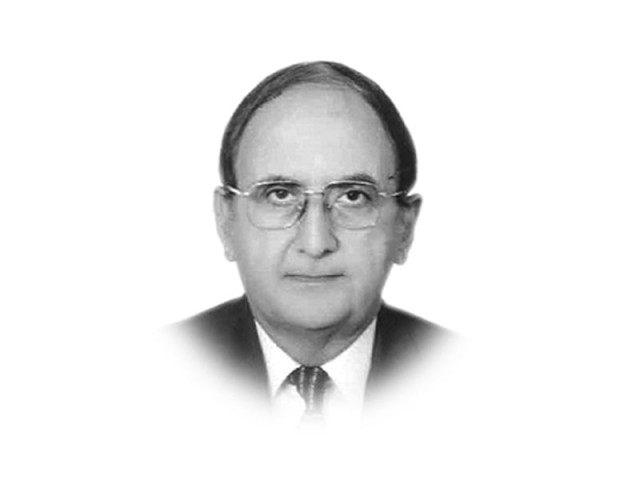Local bodies: a vital ingredient of governance
The more power is dispersed among elected institutions, the more difficult it is to dislodge democratic institutions

The writer is an independent political and defence analyst. He is also the author of several books, monographs and articles on Pakistan and South Asian affairs
PPP, PML-N consolidate gains
It is difficult to predict the performance of local governments in terms of participatory governance and socio-economic development at the local level. Five major factors will influence their role. First, all political parties and leaders recognise the importance of an elected local government. However, they have always been reluctant to set up elected local bodies at the district level and below. The old local government system came to an end on December 31, 2009. The new elections should have been held in 2010. This did not happen because the ruling political parties in 2008-15 delayed law-making and related arrangements for one reason or another. It was mainly due to the pressure of the Supreme Court that these elections were held. This reluctance and hesitation on the part of the political leadership is expected to negatively overshadow the newly established local government institutions.
Second, the provincial governments have, traditionally, been reluctant to devolve power to the district level and below. They want to directly control allocation of funds and development work. They want to get the credit for development work rather than let locally elected persons get all the praise. The key questions are to what extent will provincial governments make development funds available to these councils and how much administrative control will be exercised on them by the provincial bureaucracy.
PPP’s amateur hour
Third, the relationship of the mayors and chairmen of district councils with the members of the provincial assemblies and the two houses of parliament will be critical to the success of the local government. If they view each other as rivals in seeking development funds from the federal and provincial governments, there will be a lot of tension and conflict between the two. Between 2001 and 2009, there were repeated complaints of conflicts of interest between the District Nazim (chairman) and the parliamentarians. Now, the powers of the District Chairman have been reduced and the local administration has been given more autonomy. However, unless the elected local leadership, district level bureaucracy (under the control of the provincial government) and local parliamentarians work in harmony, the performance of local government councils will be adversely affected.
Fourth, corruption and nepotism have become so rampant in Pakistan that it will be important to make sure that administrative powers and state funds are judiciously used by the elected representatives at the local level.
Election results: PML-N victorious in five south Punjab districts
Fifth, local government institutions are working in Balochistan and K-P. However, not much is heard about their role in managing local political and development issues. The aftermath of the October 26 earthquake showed that the local councillors and their chairmen in K-P were helpless in providing rescue and relief to the victims of the earthquake. They had to look towards the provincial government, the bureaucracy and the military for help.
Local government elections have been held on a party basis, enabling political parties to publicly support candidates and distribute party tickets to them. In many cases, the award of the party ticket to candidates became a political headache for parties because of factionalism at the local party level. This problem was faced by the ruling parties in Punjab and Sindh because there were many people competing for the party tickets of the PML-N in Punjab and the PPP in Sindh. The reason for the tough competition was the perception that the ruling party ticket will ensure the support of the local administration and the police. In Karachi and Hyderabad, the MQM party ticket was also much sought after. The PTI also nominated a large number of candidates. There was not much demand for the PPP ticket in Punjab. In Sindh, on the other hand, there was a lot of competition for it.
Though political parties nationwide are involved in local government elections, these are essentially local in terms of issues and electoral dynamics. The issues pertain to civic facilities, including sewerage, roads and streets, pure drinking water, health and education facilities in the area and civic development work. Many candidates promised to get funds for the development of the area from the provincial government. The candidates of the ruling party (the PML-N in Punjab and the PPP in Sindh) had a clear advantage and made bold claims of turning the electoral ward into a model community. These claims were strengthened by the Punjab government’s announcements of the allocation of new funds for development work, while the campaign for the first round of the election was going on. This gave a clear advantage to PML-N candidates and the local administration extended a helping hand to them.
PPP makes a clean sweep in 8 Sindh districts; independents trail behind
On the one hand, one could identify the pull of the biradari system, clan, ethnic-linguistic and religious-sectarian considerations. On the other hand, there were cases of intra-family and intra-biradari conflicts and traditional local rivalries. In some cases, local factionalism within a party could be seen. In many places, the activists of the same party, such as the PML-N and the PTI, contested elections against each other. The holding of local government elections and the working of these councils at the district level and below strengthens democracy. The more power is dispersed among elected institutions, the more difficult it is to dislodge democratic institutions altogether.
Published in The Express Tribune, November 2nd, 2015.
Like Opinion & Editorial on Facebook, follow @ETOpEd on Twitter to receive all updates on all our daily pieces.














COMMENTS
Comments are moderated and generally will be posted if they are on-topic and not abusive.
For more information, please see our Comments FAQ